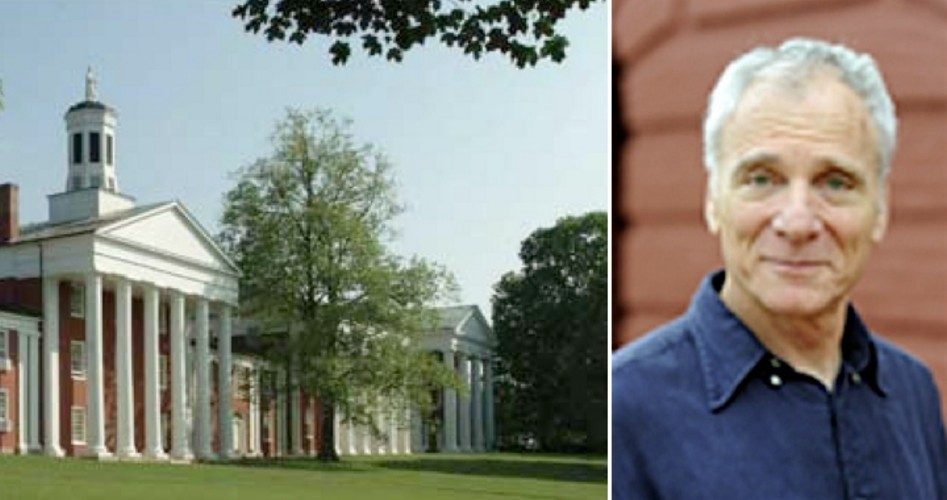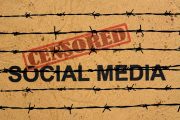
After his election in 2008, Barack Obama posted to his administration’s new website — change.gov — that he would protect whistleblowers. The then-president-elect promised:
We need to empower federal employees as watchdogs of wrongdoing and partners in performance. Barack Obama will strengthen whistleblower laws to protect federal workers who expose waste, fraud, and abuse of authority in government.
Not that politicians have a habit of keeping campaign promises, but President Obama’s policy of zealously pursuing, prosecuting, and punishing those who report abuses in government is remarkable for its relentlessness.
Edward Wasserman, speaking last month at the 6th Annual Logan Symposium on Investigative Reporting at the University of California, Berkeley, powerfully chronicled the chilling effect that the Obama administration’s apparent vendetta against whistleblowers is having on such disclosures and against the journalists who report them.
Steven Aftergood, the director of the Federation of American Scientists’ government secrecy project, is quoted in a story published by Reason magazine online, explaining, “The administration’s aggressive pursuit of leaks represents a challenge to the practice of national security reporting, which depends on the availability of unauthorized sources if it is to produce something more than ‘authorized’ news.”
In his address at Berkeley, Wasserman, the Knight Professor of Journalism Ethics at Washington & Lee University (pictured above), informed the audience that, “[The Obama] Justice Department has conducted six prosecutions over leaks of classified information to reporters. Five involve the Espionage Act, a powerful law that had previously been used only four times since it was enacted in 1917 to prosecute spies.”
The first whistleblower cited in Wasserman’s address was Thomas Drake. Drake was a senior executive at the National Security Agency who made the mistake of revealing to the Baltimore Sun that the NSA’s Trailblazer Project, a project intended to analyze data carried on in the United States and elsewhere through the Internet, cell phones, and emails, not only violated the Fourth Amendment’s proscription against unwarranted searches and seizures, but it was a “billion-dollar computer boondoggle.”
In April 2010, Drake was indicted by a federal grand jury of several crimes, including violation of the Espionage Act. If convicted of the charges against him, Drake faced up to 35 years in federal prison.
A spokesperson for the Government Accountability Project reported that the government’s prosecution of Drake left him devastated. “His intelligence career is over, his finances are drained and he is personally spent,” said Jesselyn Radack.
According to one report, Drake was forced out of his NSA job and was working at an Apple Store in the Washington, D.C. area.
Early in the summer of 2011, after several exposés ran in newspapers and on television, the Obama administration dropped all the charges against Drake in return for Drake’s guilty plea to a misdemeanor of misusing NSA computers. Drake was sentenced to one year of probation and community service.
The second target of the government’s attack on whistleblowers was Shamai Leibowitz, an FBI linguist who was eventually sentenced to 20 months in a federal prison for leaking documents to a blogger.
Leibowitz testified that he believed that the papers he transmitted while working for the FBI contained evidence of “violations of the law” including the illegal attempt by the embassy of Israel to influence American foreign policy.
In exchange for his guilty plea to one count of disclosure of classified information, Leibowitz agreed to never file petitions to look at documents related to his case and to “never disclose” any classified or sensitive information to which he had access while on contract with the FBI.
Next on the list of those who believed (wrongly) that President Obama would keep his campaign promise to shield from prosecution those government employees brave enough to bring to light hidden abuses and waste is John Kiriakou.
Kiriakou was an agent with the Central Intelligence Agency (CIA) who was indicted earlier this year by a federal grand jury for disclosing to reporters the name of another CIA asset who was tasked with interrogating alleged al-Qaeda financier, Abu Zybaydah.
The indictment included one charge of making false statements, which carries a maximum five-year prison sentence, and four counts of violating federal law, including the Espionage Act — an offense punishable by up to 10 years in a federal prison.
There is little wonder why the Obama administration would seek to silence Kiriakou: In 2007, Kiriakou told ABC News that he considered waterboarding an “unnecessary” form of interrogation.
Wasserman then mentions two others upon whom the federal government must place the muzzle of prosecution:
Stephen Kim, a State Department analyst, allegedly told a reporter for Fox News — wait for it — that the U.S. was worried North Korea might respond to new U.N. sanctions by testing another A-bomb; and Jeffrey Sterling, who allegedly disclosed a botched CIA operation in Iran that was described in a 2006 book by a Times reporter.
The final example of the ferocity of President Obama’s assault on those foolish enough to expose the lies and gross misdeeds perpetrated by our own government is Bradley Manning.
In what is described as “the biggest leak of classified information in U.S. history,” Manning is accused of passing over 700,000 documents and video clips to WikiLeaks, the well-known website devoted to exposing government corruption throughout the world.
At the arraignment presided over by Colonel Denise Lind at Fort Meade, Maryland, Manning refused to enter a plea. He also put off the decision of whether he prefers a jury or a bench trial (in the latter, guilt or innocence will be determined by a judge alone).
If convicted of the charge of giving aid to the enemy, Manning could face life imprisonment. The maximum penalty for the other charges he faces is 150 years combined.
A trial date has not been scheduled.
Private Manning, 24, from Crescent, Oklahoma, has been detained since he was arrested on May 29, 2010 while on deployment with the 10th Mountain Division in Iraq.
While on duty near Baghdad, Manning had access to the Secret Internet Protocol Router Network (SIPRNet) and the Joint Worldwide Intelligence Communications System. SIPRNET is the network used by the U.S. government to transmit classified information.
Manning’s arrest came as the result of information provided to the Federal Bureau of Investigation (FBI) by a computer hacker named Adrian Lamo. Lamo told agents that during an online chat in May 2010, Manning claimed to have downloaded classified information from SIPRNet and sent it to WikiLeaks.
According to published reports, the material Manning is accused of unlawfully appropriating includes a large cache of U.S. diplomatic cables (approximately 250,000), as well as video of an American airstrike on Baghdad conducted in July 2007 and a similar attack in May 2009 on a site near Granai, Afghanistan (an event sometimes known as the Granai Massacre).
Some may wonder why President Obama didn’t think this through a little better and provide the whistleblowers with the protection he promised and instead pursue legal remedies against the journalists who break the stories given them by these well-informed sources.
The answer to that question was given in a comment made “rather gloatingly” by “a national security representative” to Lucy Dalglish, Executive Director of the Reporters Committee for Freedom of the Press: “We’re not going to subpoena reporters in the future. We don’t need to. We know who you’re talking to.”


